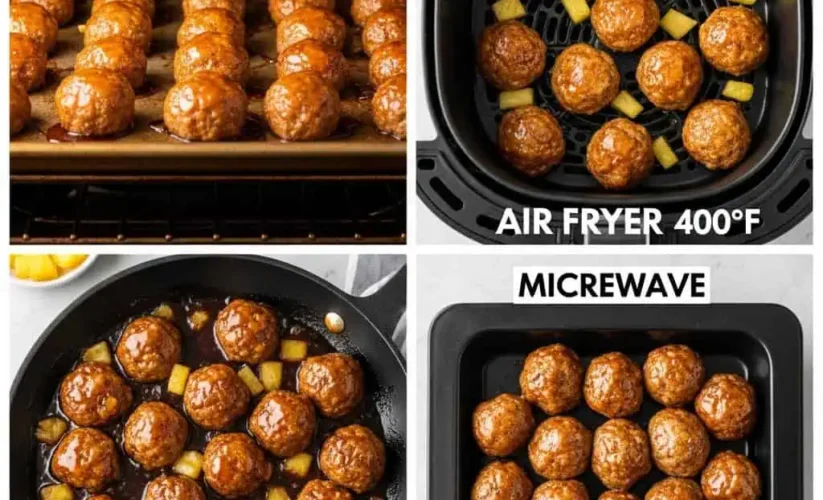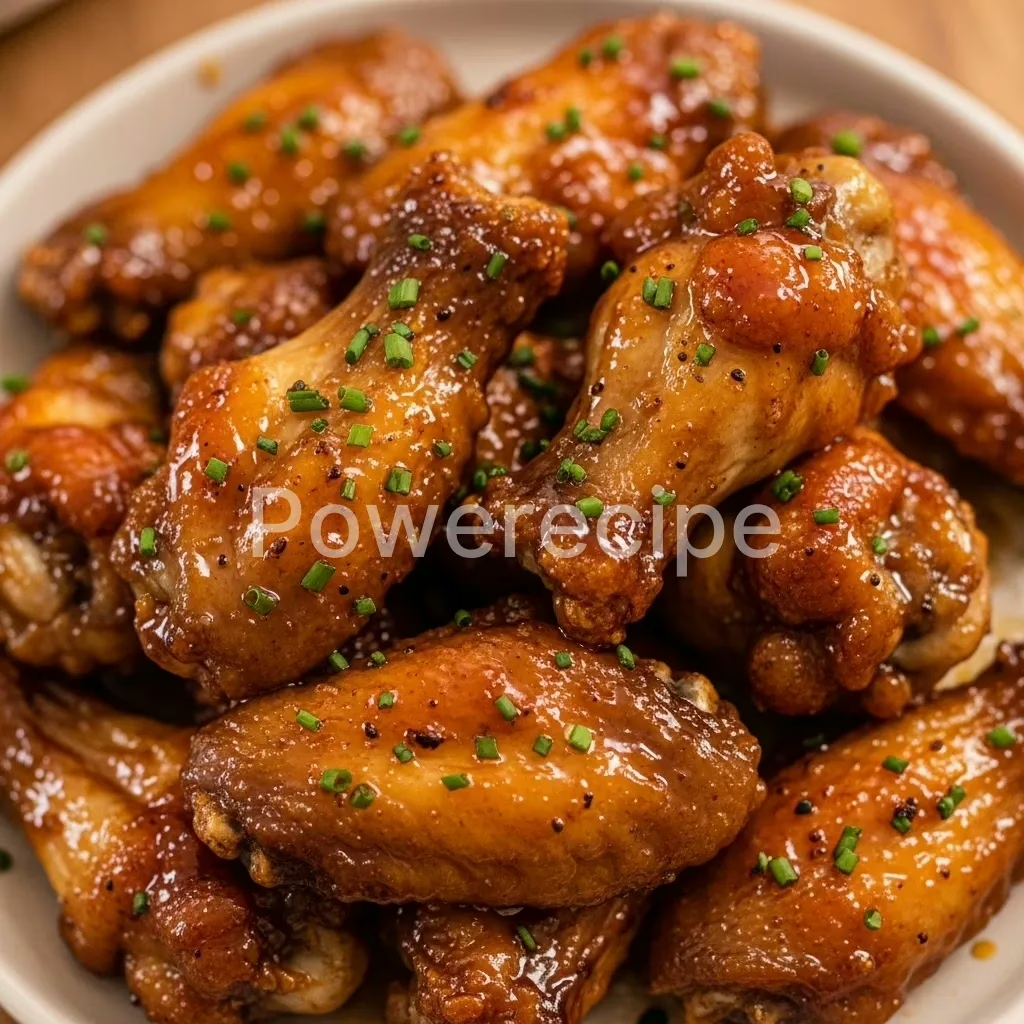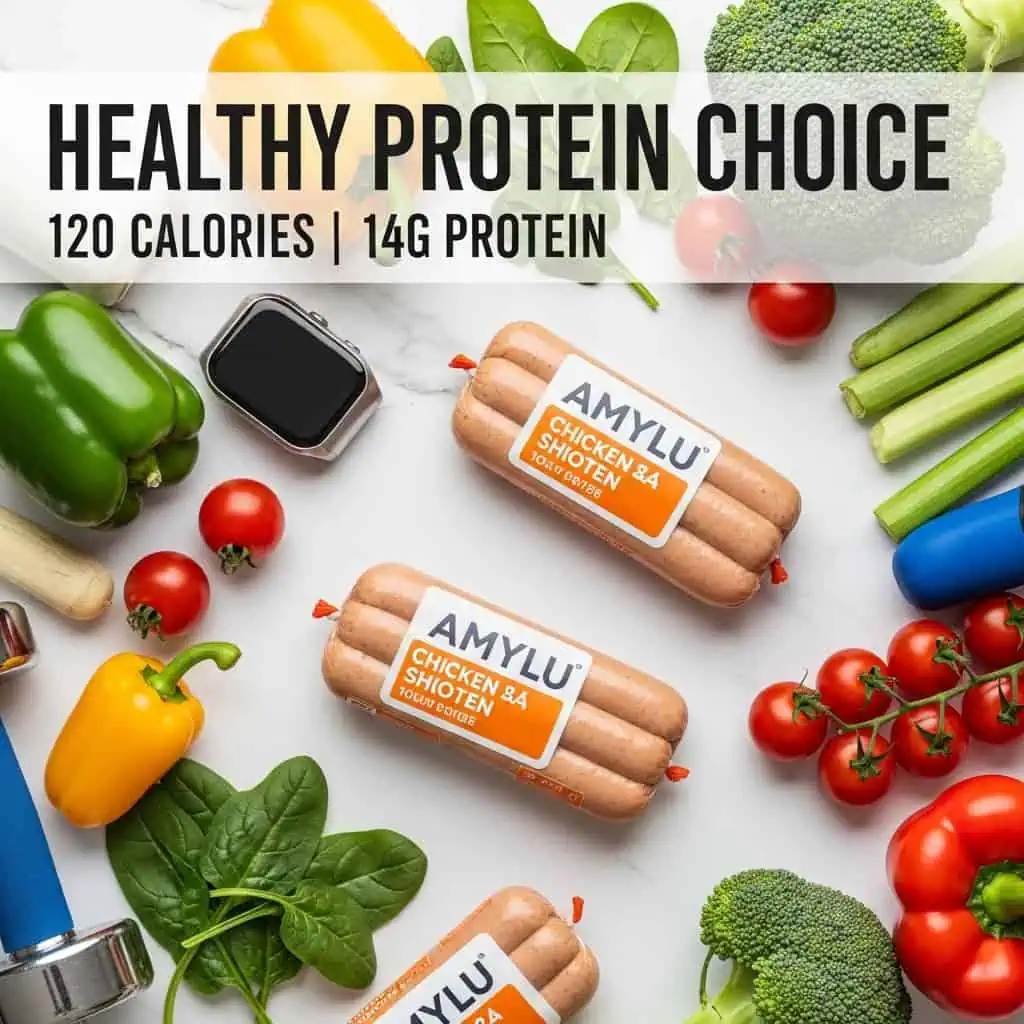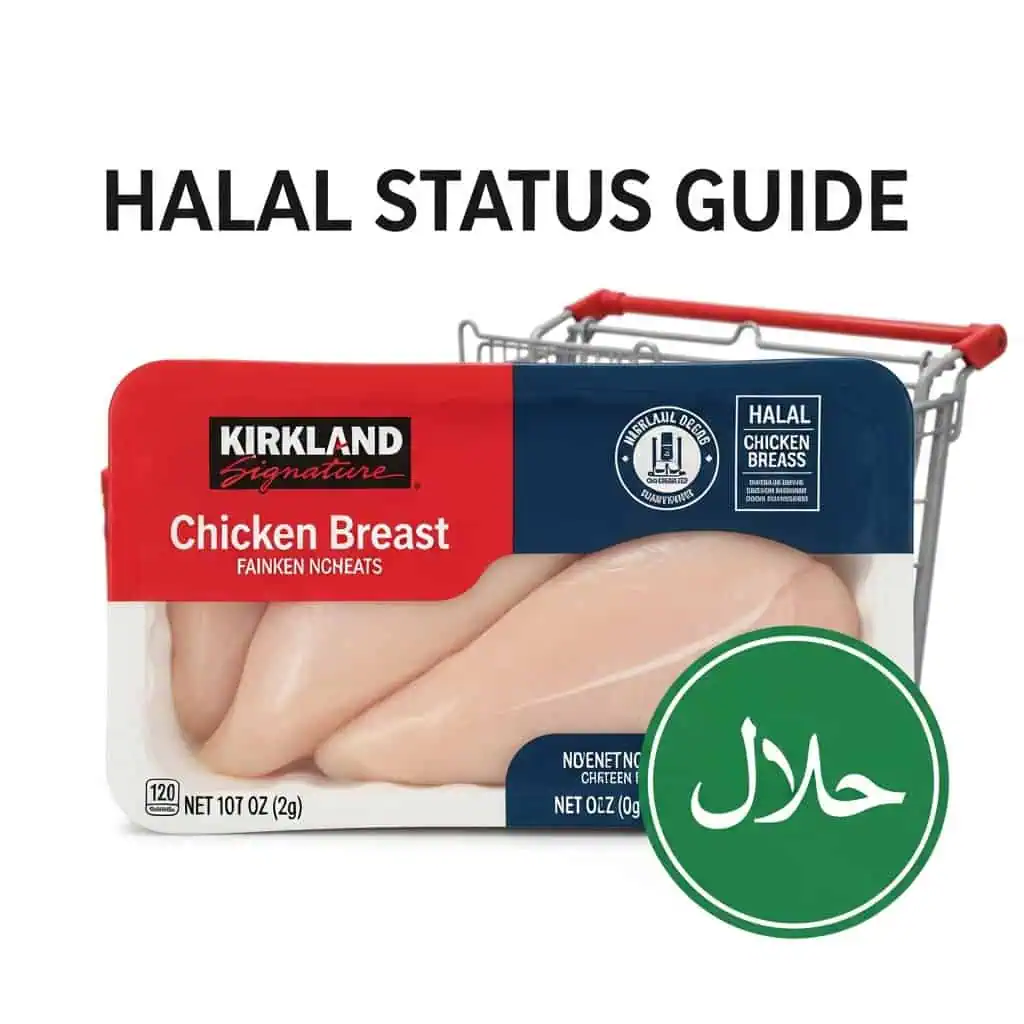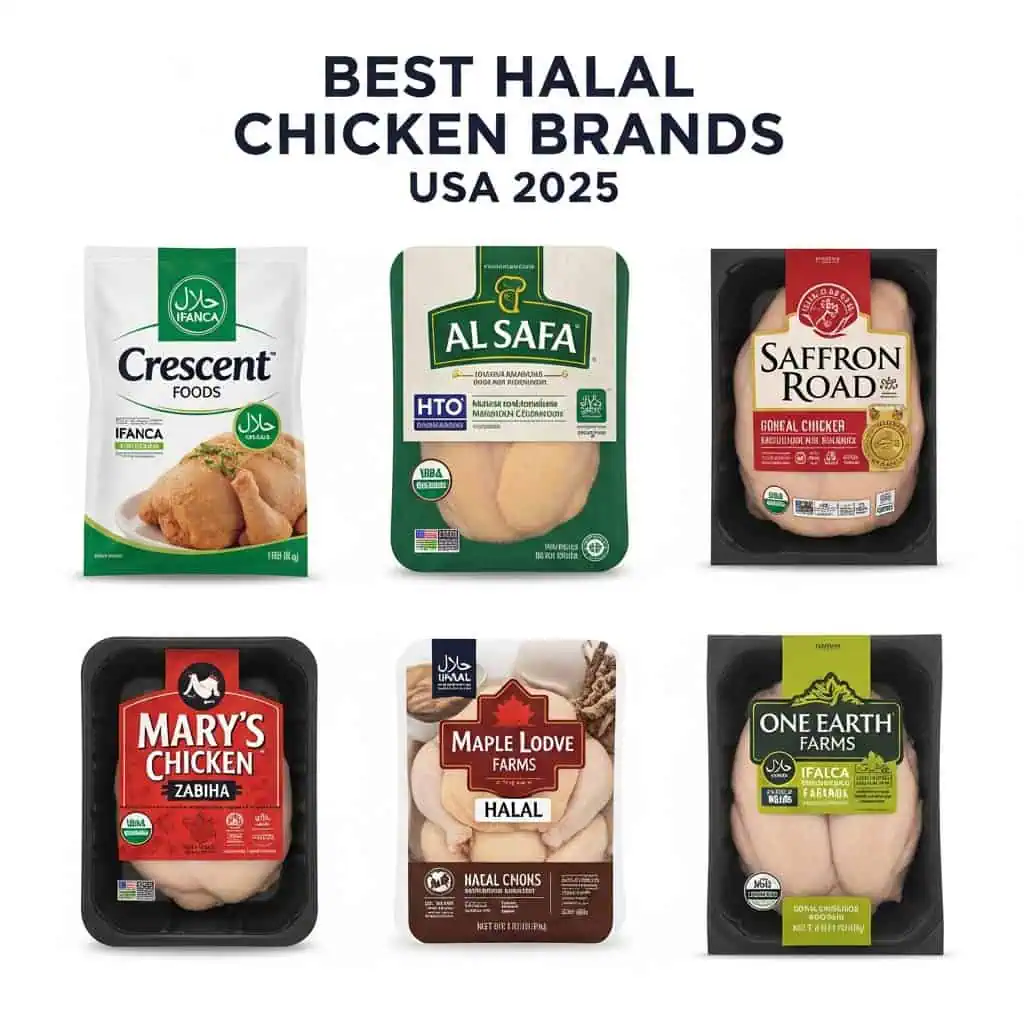Is Amylu Halal? Complete Guide 2025
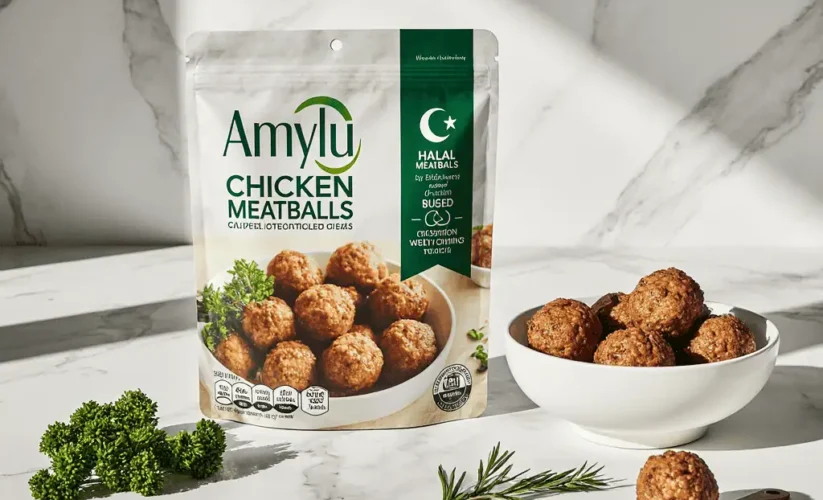
Is Amylu Halal? Complete Certification Guide 2025
Quick Answer
Yes, most Amylu products are halal certified. Amylu offers a wide range of halal-certified chicken meatballs and chicken sausages that meet Islamic dietary requirements. These products are processed using zabiha slaughter methods and contain no haram ingredients.
✅ Halal Status: Certified
✅ Products: Chicken Meatballs, Chicken Sausages
✅ Method: Zabiha Slaughter
⚠️ Important: Always verify the halal certification symbol on individual product packaging
Table of Contents
If you’re a Muslim consumer looking for convenient, delicious, and halal-certified chicken products, you’ve probably spotted Amylu at your local Costco or grocery store. The question many families ask is: Is Amylu halal?
The good news is that Amylu does offer halal-certified options that meet Islamic dietary standards. In this comprehensive guide, we’ll explore everything you need to know about Amylu’s halal status, which products carry certification, and how to identify them when shopping.
Whether you’re meal prepping for your family or simply looking for quick, halal-compliant protein options, this guide will help you make informed choices about Amylu products.
What Makes Amylu Halal?
Understanding Halal Certification
For a meat product to be considered halal, it must comply with Islamic dietary laws as outlined in the Quran and Hadith. Amylu’s halal-certified products meet these strict requirements through several key practices.
Zabiha Slaughtering Method
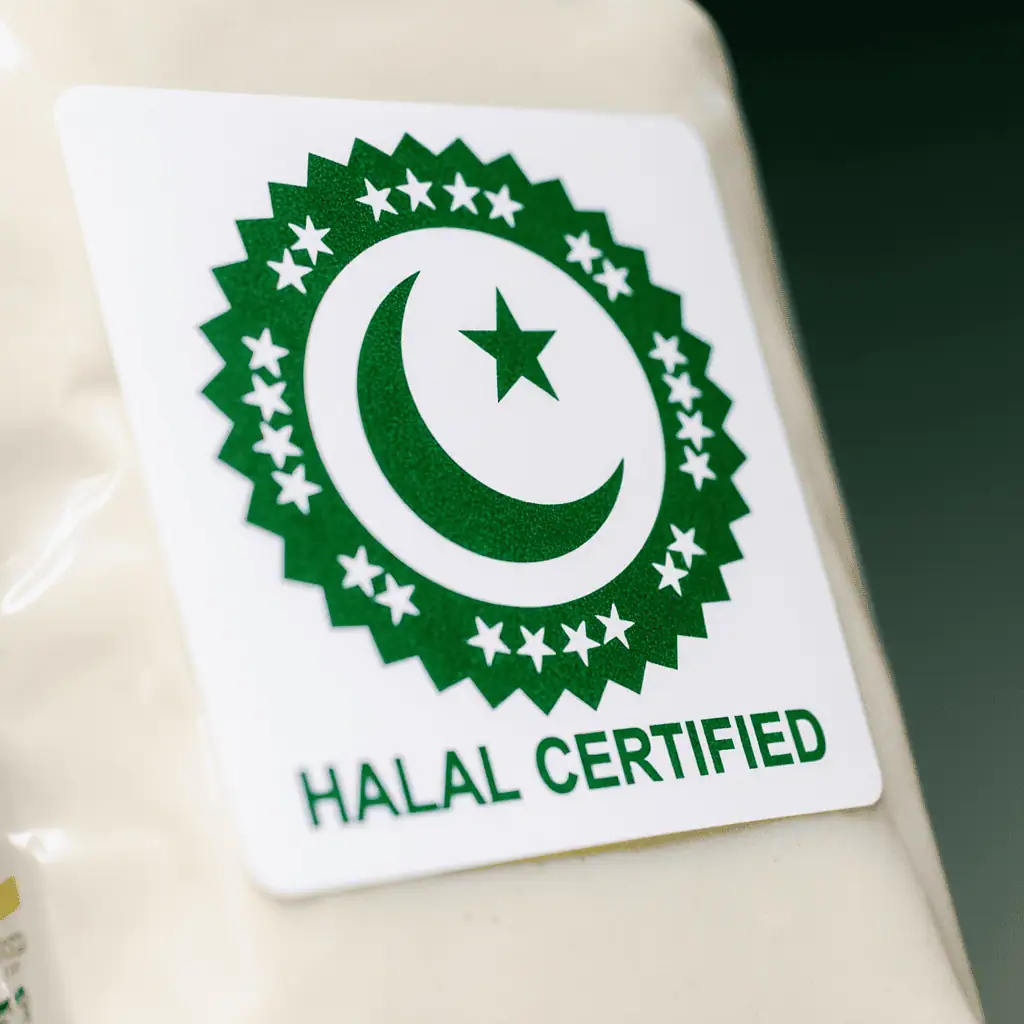
All halal-certified Amylu chicken products are slaughtered according to zabiha standards, which include:
- Invoking Allah’s name (saying “Bismillah Allahu Akbar”) at the time of slaughter
- Using a sharp knife for swift, humane slaughter
- Cutting the jugular vein, carotid artery, and windpipe in one motion
- Ensuring complete blood drainage from the carcass
- The animal must be alive and healthy at the time of slaughter
This method ensures the meat is permissible for Muslim consumption and aligns with Islamic principles of animal welfare.
No Prohibited Ingredients
Amylu’s halal-certified products are carefully formulated to contain:
✅ 100% chicken – No pork or pork by-products
✅ Halal-approved seasonings – All spices and flavorings are verified
✅ No alcohol-based ingredients – Zero ethanol or wine-based additives
✅ No animal-derived enzymes from non-halal sources
✅ No gelatin from pork
Every ingredient is scrutinized to ensure compliance with Islamic dietary laws.
Independent Halal Certification
Amylu works with recognized halal certification bodies to ensure their products meet Islamic standards. Each halal-certified product undergoes:
- Regular facility inspections
- Ingredient verification audits
- Manufacturing process reviews
- Supply chain monitoring
- Ongoing compliance testing
This third-party verification gives Muslim consumers confidence that Amylu products truly meet halal requirements.
Dedicated Production Protocols
Amylu maintains strict segregation protocols during production to prevent cross-contamination with non-halal ingredients. This includes:
- Separate production lines when necessary
- Thorough cleaning between production runs
- Dedicated equipment for halal products
- Staff training on halal requirements
- Proper storage and handling procedures
Which Amylu Products Are Halal?
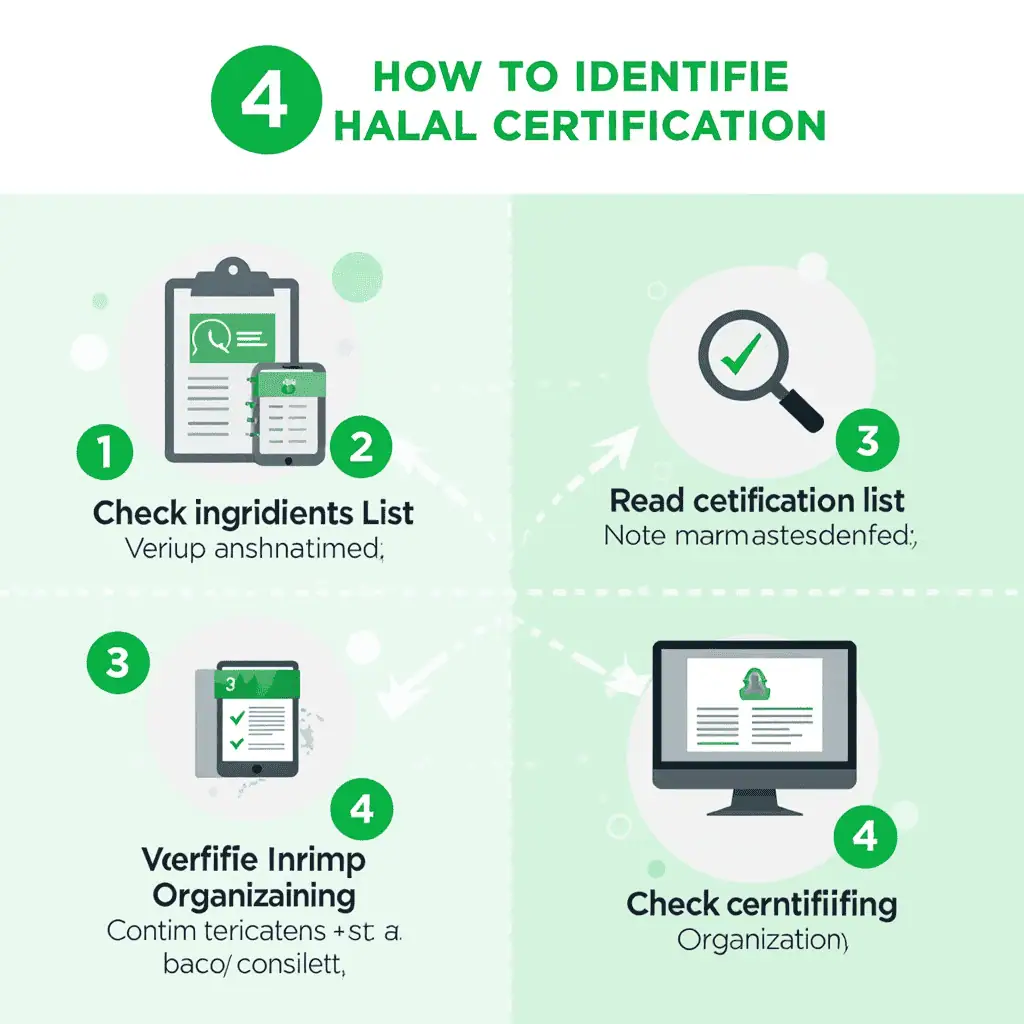
Not all Amylu products carry halal certification. Here’s a detailed breakdown of what’s halal-certified and what requires verification.
✅ Halal-Certified Chicken Meatballs
The following Amylu chicken meatball varieties typically carry halal certification:
| Product | Halal | Size | Where to Buy |
|---|---|---|---|
| Roasted Garlic | ✅ | 2 lbs | Costco, Whole Foods |
| Teriyaki Pineapple | ✅ | 2 lbs | Costco, Target |
| Italian Style | ✅ | 2 lbs | Costco, Safeway |
| Classic | ✅ | 2 lbs | Major retailers |
Key Features:
- Made with 100% chicken breast meat
- Pre-seasoned and fully cooked for convenience
- Ready in just 15 minutes – oven, air fryer, or stovetop
- Perfect for quick weeknight dinners and meal prep
- No artificial preservatives or fillers
Popular uses: Spaghetti and meatballs, meatball subs, appetizer platters, rice bowls, meal prep containers
✅ Halal-Certified Chicken Sausages
Several Amylu chicken sausage varieties also carry halal certification:
Certified Varieties:
- Amylu Andouille Chicken Sausage (halal-certified)
- Amylu Spinach & Feta Chicken Sausage (halal-certified)
- Amylu Apple Gouda Chicken Sausage (halal-certified)
- Amylu Italian Chicken Sausage (halal-certified)
Benefits of Amylu Halal Sausages:
- Lower in fat than traditional pork sausages
- Fully cooked – just heat and serve
- Gluten-free options available
- No nitrates or nitrites
- Versatile for breakfast, lunch, or dinner
Serving suggestions: Breakfast scrambles, pasta dishes, grilled with peppers and onions, sandwich fillings, pizza toppings
⚠️ Products Requiring Verification
Always verify halal status on packaging for:
- Seasonal or limited-edition flavors
- New product releases
- Beef or turkey products (if available)
- Regional product variations
- Products purchased internationally
When in doubt, look for the halal certification symbol on the package or contact Amylu’s customer service directly for confirmation.
How to Identify Halal Amylu Products
Shopping for halal products doesn’t have to be complicated. Follow these simple steps to ensure you’re purchasing halal-certified Amylu items.
Step 1: Check the Package Front
The halal certification logo is typically displayed prominently on the front of the package. This symbol may include:
- A crescent moon and star
- The word “HALAL” in English or Arabic
- The certifying organization’s name
- A certification number
If you see this symbol on the front of the package, the product is halal-certified.
Step 2: Read the Ingredients List
Even with certification, it’s good practice to review the ingredients. Look for:
Green flags:
- Chicken as the primary ingredient
- Recognizable spices and seasonings
- Natural ingredients
- No alcohol-based additives
Red flags that would disqualify halal status:
- Pork or pork derivatives (gelatin, bacon, lard)
- Alcohol or wine
- Non-halal animal-derived enzymes
- Questionable emulsifiers or additives
Step 3: Look for Clear “Halal Certified” Text
Most halal-certified Amylu products clearly state:
- “Halal Certified”
- “Zabiha Halal”
- The certification body name
This text usually appears near the product name or nutritional information.
Step 4: Check the Back Label
The back label often provides:
- Detailed certification information
- The certifying organization’s contact details
- Certification number or seal
- Production facility information
Step 5: When in Doubt, Contact Customer Service
If the packaging is unclear or you’re shopping online:
Amylu Customer Service:
- Phone: Check Amylu.com for current number
- Email: Contact form on Amylu.com
- Website: Visit their halal product page
They can confirm the halal status of specific products and provide certification details.
Step 6: Use the Product Locator
Amylu’s website offers a product locator tool that can help you:
- Find stores carrying halal-certified products in your area
- Verify which products are currently certified
- Check for new halal product releases
Nutritional Benefits of Halal Amylu Products
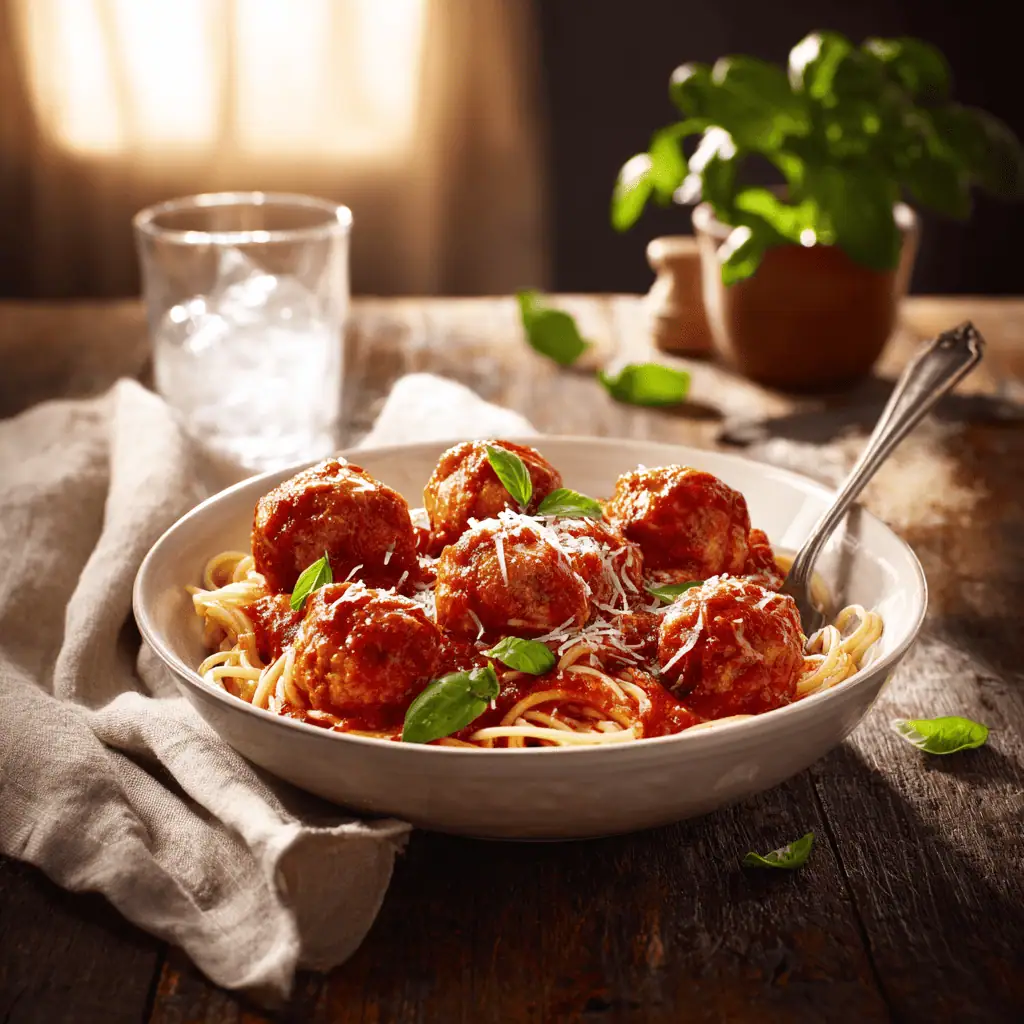
Choosing Amylu halal-certified chicken products isn’t just about religious compliance—these products offer excellent nutritional value for the entire family.
High-Quality Lean Protein
Amylu Chicken Meatballs (per 3 meatball serving):
- Protein: 14-16g per serving
- Fat: 8-10g (mostly unsaturated)
- Calories: 140-180
- Carbohydrates: 3-6g
Health Benefits:
- Supports muscle growth and repair
- Promotes satiety and weight management
- Essential for children’s development
- Great for active lifestyles and fitness goals
- Helps maintain healthy metabolism
Natural, Clean Ingredients
Amylu halal products pride themselves on using:
✅ No artificial preservatives – Fresh, real ingredients
✅ No nitrates or nitrites – Common in processed meats
✅ No artificial colors or flavors – Natural seasonings only
✅ No MSG – Clean label commitment
✅ Minimally processed – Simple ingredient lists
This clean ingredient philosophy makes these products suitable for health-conscious families.
Family-Friendly Nutrition
Amylu halal products are excellent for:
Kids:
- Familiar flavors kids love
- Easy to prepare for busy parents
- Good source of protein for growing bodies
Adults:
- Portion-controlled servings
- Fits various dietary patterns
- Quick meal solutions for busy schedules
Seniors:
- Easy to chew and digest
- Good protein source
- Convenient preparation
Dietary Compatibility
Many Amylu halal products accommodate multiple dietary needs:
- Gluten-free options available
- Dairy-free (select varieties)
- Low-carb friendly (2-6g carbs per serving)
- Keto-compatible in moderation
- High-protein for fitness enthusiasts
Always check specific product labels for dietary information.
Where to Buy Halal Amylu Products
Major Retail Chains
Costco ⭐ Most Popular
- Products: 2-pack chicken meatball varieties
- Price Range: $12-18 for 2-lb packages
- Availability: Most locations nationwide
- Value: Best bulk pricing
- Tip: Check refrigerated meat section
Whole Foods Market
- Products: Select Amylu halal varieties
- Package Sizes: Smaller packages (1 lb)
- Price: Premium pricing ($8-12 per lb)
- Availability: Most locations
Target
- Products: Popular chicken meatball flavors
- Location: Frozen or refrigerated meat section
- Price: Mid-range pricing
- Convenience: Online ordering with pickup
Walmart
- Products: Select varieties
- Price: Competitive pricing
- Availability: Check your local store
Regional Grocery Chains:
- Safeway/Albertsons: Good selection
- Kroger: Available in many locations
- Publix: Southeast availability
- HEB: Texas availability
Online Shopping Options
Amazon Fresh
- Same-day or next-day delivery
- Subscribe & Save discounts (5-15% off)
- Prime member benefits
Instacart
- Shop from multiple local stores
- Same-day delivery available
- Price comparison across stores
Thrive Market
- Natural and organic food focus
- Member discounts
- Delivers nationwide
Specialty Halal Stores
Many halal butcher shops and Islamic grocery stores also carry Amylu products. Benefits include:
- Shopping in fully halal environment
- Knowledgeable staff
- Support local Muslim-owned businesses
Finding halal stores:
- Search “halal grocery near me”
- Check local mosque bulletin boards
- Use apps like Zabihah.com
Shopping Tips
Best value tips:
- Buy in bulk at Costco
- Watch for sales at grocery stores
- Use store apps for coupons
- Sign up for Amylu emails
- Buy when stock is fresh
Storage tips:
- Refrigerated: Use within 5-7 days of opening
- Unopened: Check “use by” date
- Freezing: Up to 3 months in original packaging
- Cooked leftovers: Refrigerate within 2 hours
Frequently Asked Questions
Is Amylu chicken halal certified?
Yes, most Amylu chicken products including chicken meatballs and chicken sausages are halal certified. The products are slaughtered according to zabiha methods and meet Islamic dietary requirements. Always look for the halal certification symbol on the packaging to confirm your specific product is certified.
Does Amylu use zabiha slaughter methods?
Yes, Amylu’s halal-certified chicken products are processed using zabiha slaughter methods that comply with Islamic dietary laws. This includes invoking Allah’s name at the time of slaughter, using a sharp knife for swift and humane slaughter, and ensuring complete blood drainage.
Are all Amylu products halal?
No, not all Amylu products are halal-certified. While most chicken meatballs and chicken sausages carry halal certification, you should always check the individual product packaging for the halal certification symbol. Some specialty items or seasonal flavors may not be certified.
Where can I find Amylu’s halal certification information?
The halal certification logo appears on the front or back of certified product packaging. You can also visit Amylu’s official website, contact their customer service, or check with the halal certification organization listed on the package for detailed certification information.
Is Amylu chicken sausage halal?
Yes, most Amylu chicken sausage varieties are halal certified, including popular flavors like Andouille, Spinach & Feta, Apple Gouda, and Italian. However, always verify the halal symbol on your specific package as certification may vary by product line or region.
Are Amylu meatballs from Costco halal?
Yes, the Amylu chicken meatballs sold at Costco typically carry halal certification. The most common varieties at Costco (Roasted Garlic and Teriyaki Pineapple) are usually halal-certified, but always check the package for the halal symbol to confirm.
Does Amylu contain pork?
Amylu’s halal-certified chicken products contain no pork or pork derivatives. However, Amylu manufactures various products, and some non-halal product lines may exist. Always verify halal certification on each individual package you purchase.
Is Amylu suitable for Muslim families?
Yes, Amylu’s halal-certified chicken products are suitable for Muslim families following Islamic dietary laws. These products meet zabiha standards, contain no haram ingredients, and are certified by recognized halal certification bodies.
How do I verify if my Amylu product is halal?
To verify halal status: (1) Look for the halal certification symbol on the package, (2) Check for “Halal Certified” text, (3) Read the ingredients list, (4) Note the certification body name, or (5) Contact Amylu customer service directly.
Does Amylu have beef products that are halal?
Amylu’s halal certification primarily covers their chicken products. If considering beef products, check the specific package for halal certification as availability may vary.
Conclusion
Yes, Amylu offers excellent halal-certified chicken products that meet Islamic dietary requirements. With their chicken meatballs and sausages carrying halal certification, Muslim families can enjoy convenient, delicious, and compliant protein options.
